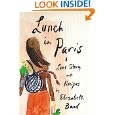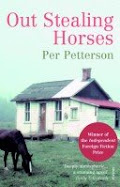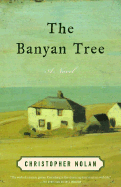Esther Freud's Hideous Kinky, published as a first novel in 1992, is as charming as it is often alarming. A narrative of one family's trip by caravan, train and trek, through Europe and into North Africa, the story is told through the eyes of the youngest of two sisters, who is five at the start.
Set in the 1960's, as the story unfolds, the reader meets the two sisters, their mother and an evolving cast of characters they encounter along the way. We learn that the mother and the girls are English, that they've left home in search of adventure. Though there is a father, he is out of the picture, save for sending money and Christmas gifts to the girls.
Though the mother is a talented seamstress, she appears without further credentials, and makes her way through various adventures either by her wits or with the help of a young Arab man, Bilal. It is Bilal, whom her youngest daughter pointedly asks to be her father, at one point. Largely without resources, the mother and her girls survive from day to day, and she spends a great deal of time worrying whether or not money from England will present itself.
For his part, Bilal also survives by his wits, acrobatic tricks and business schemes, which fall flat, as he is unable to train the narrator of this story to effect more than a handstand. A growing attraction to Sufism compels the girls' mother apart from Bilal as she goes to another town in search of a mystic with whom to broaden her spiritual horizons.
At this juncture, the oldest daughter, Bea, all of eight, announces she's staying put. Headstrong, Bea craves the stability of school and home, as does her younger sister, who dreams of mashed potatoes. Their wandering, self-preoccupied mother, meanwhile, remains oblivious to these needs.
Leaving Bea with an expatriate couple, her mother and the young narrator in this book set out, eventually making their way to yet another town by train, hitch hiking and walking until they find the desired Sufi colony. Gone for weeks on end, growing penury and the event of Bea's birthday finally forces their return to Marrakesh.
Alarmed to learn that Bea is no longer where she left her, the reader finally sees panic set in as her mother searches, eventually locating Bea at a school for children with polio, which is run by yet another ex pat. Meeting her eldest in the midst of her birthday celebration, an event laden with sandwiches, fruits, cake and lemonade, Bea's mother notes a cold reception.
Returning to their previous hotel and its diverse inhabitants, the girls, their mother and Bilal find themselves in dire straits monetarily. It is then that Bilal composes a letter of flourishing prose, exhorting his rich Islamic brethren to show charity and kindness to this English woman. Instructing her to take the letter to the best merchants and others, the girls' mother is thus reduced to begging.
While one would think that this mother would then see sense and return to England, it is not until Bea evidences a nasty gum infection and is taken to see an ex-pat known as Auntie Rose, that the tide turns. Though Rose confirms a gum infection and shows Bea how to gargle with warm water and salt, she is neither doctor nor dentist, advising the girls' mother to simply get them home.
Finally obtaining medication from a doctor, Bea's infection clears, and plans are made to return to England. In a poignant ending, Bea climbs into a barren luggage rack, softly chanting the words hideous kinky to herself as the narrator of this story decides to stay seated with their mother, in case she should suddenly drop her plans to go home, exiting instead at one of the train stops.
While I enjoyed the perspective and narration in Freud's novel, I often found myself wondering what the girls' mother was thinking, first carting them across Europe in a broken down caravan driven by her married boyfriend, while his wife in the back doesn't speak. The only words emerging from her almost catatonic silence are 'hideous kinky', which becomes a soothing mantra for the children as the twists and turns of this otherwise delightful read become too confusing.
The use of the youngest child as narrator in this book provides a comedic, innocent foil against which the restlessness, rootless wandering and spiritual dabbling of her mother contrast sharply. One wonders about the "Daddy in England," whose presents appear at Christmas, the boyfriend John, who leaves with his fragile wife as the others depart for Morocco via ferry from Spain, all of the prostitutes at their hotel in Marrakesh who steal a friend's baby's nappies and other things from them, and the mother's subsequent relationship with an otherwise religious Muslim, whom the narrator claims as her father. The plethora of characters they meet on their various adventures also stand out against the innocence of her narration, sometimes to an alarming degree. The mother's naivete in leaving Bea behind, is but one of many examples of this.
Another is her almost constant penury. Who takes children on a trip with no money and no plan as to how to provide for them? Who makes no plans for a child's education, leaving it to an eight-year-old to announce that she was going to school and needed a uniform? Given that the 60's were an era of hippies and 'free love', some but certainly not all of their mother's preoccupation and longing for adventure, was understandable, but these children seemed more like props on her stage, as did Bilal and John.
The fact that this book is loosely autobiographical is interesting. Freud, an actress turned novelist, appears open to adventure in this book. One wonders whether she is the young narrator of this tale or her more rebellious older sister.
Adapted into a 1998 film of the same title, this book is a refreshing read. As I have yet to see the film, starring Kate Winslett, I've no idea how the movie compares to the book. Has anyone else seen this?
Until Next Time...
Sunday, October 11, 2009
Tuesday, October 6, 2009
The Sheltering Sky...Some Comments by E
Paul Bowles 1949 book, The Sheltering Sky, focuses on the lives of an American couple and a friend and their travels together in the North African desert. Bowles never answers the question as to why they choose to travel that region, although he hints at marital difficulties between Kit Moresby and her husband, Porter, who it seems, is just seeking adventure and believes Europe to be ruined by war.
Kit is portrayed as rather manipulative; She becomes guilt-ridden after almost responding to the romantic attentions of their friend, Tunner. Her relationship with Porter is noticeably lacking in both romance and genuine affection. Tunner apparently has amorous feelings for Kit, which are never fully explored or explained by the author.
Another hallmark of these characters is that none of them seem aware of the myriad dangers present around them---from disease and bad food to political unrest. There is also the matter of an over-bearing, extremely racist, anti-Semitic English woman and her thieving son, who attempt to befriend the trio. Aside from feeling superior to Jews, the French and Africans, which the reader learns about via increasingly jarring commentary, her character and that of her son, appear to exemplify the worst of English classicism and racism, while Americans are portrayed as ignorant, adventure-seeking fools. Arabs are seen in a somewhat more sympathetic light.
When Porter dies after an unnamed illness, Kit wastes no time in fleeing, leaving Porter's corpse to be discovered by Tunner and the police. Leaving her old life behind, Kit determines to have an adventure of her own, paying no heed to the possible dangers, cultural differences or vagaries of politics that darken the road ahead.
Eventually becoming the concubine of an Arab, Kit also realises she too is ill, a situation that escalates as the last part of the story unfolds. When she is escapes and is at last located by the police and consulate, the woman sent to organise Kit's return to the United States is genuinely shocked at her appearance and attitude and wonders whether Kit has gone mad.
The reader, at least this one, is left with that unanswered question as well as others. and struck by Bowles apparent dislike of his characters.
As an expatriate himself for over fifty years, Bowles may have seen adventurers of every stripe; he is certainly unstinting in his portrayals. An interesting contrast in his own life is that Paul Bowles writing is characterized by dark elements while his musical compositions, for which he is also well known, are of much lighter tone. For more information about the author, visit the official Bowles website at http://www.PaulBowles.org.
The Sheltering Sky is a provacative read.
Kit is portrayed as rather manipulative; She becomes guilt-ridden after almost responding to the romantic attentions of their friend, Tunner. Her relationship with Porter is noticeably lacking in both romance and genuine affection. Tunner apparently has amorous feelings for Kit, which are never fully explored or explained by the author.
Another hallmark of these characters is that none of them seem aware of the myriad dangers present around them---from disease and bad food to political unrest. There is also the matter of an over-bearing, extremely racist, anti-Semitic English woman and her thieving son, who attempt to befriend the trio. Aside from feeling superior to Jews, the French and Africans, which the reader learns about via increasingly jarring commentary, her character and that of her son, appear to exemplify the worst of English classicism and racism, while Americans are portrayed as ignorant, adventure-seeking fools. Arabs are seen in a somewhat more sympathetic light.
When Porter dies after an unnamed illness, Kit wastes no time in fleeing, leaving Porter's corpse to be discovered by Tunner and the police. Leaving her old life behind, Kit determines to have an adventure of her own, paying no heed to the possible dangers, cultural differences or vagaries of politics that darken the road ahead.
Eventually becoming the concubine of an Arab, Kit also realises she too is ill, a situation that escalates as the last part of the story unfolds. When she is escapes and is at last located by the police and consulate, the woman sent to organise Kit's return to the United States is genuinely shocked at her appearance and attitude and wonders whether Kit has gone mad.
The reader, at least this one, is left with that unanswered question as well as others. and struck by Bowles apparent dislike of his characters.
As an expatriate himself for over fifty years, Bowles may have seen adventurers of every stripe; he is certainly unstinting in his portrayals. An interesting contrast in his own life is that Paul Bowles writing is characterized by dark elements while his musical compositions, for which he is also well known, are of much lighter tone. For more information about the author, visit the official Bowles website at http://www.PaulBowles.org.
The Sheltering Sky is a provacative read.
Subscribe to:
Posts (Atom)











